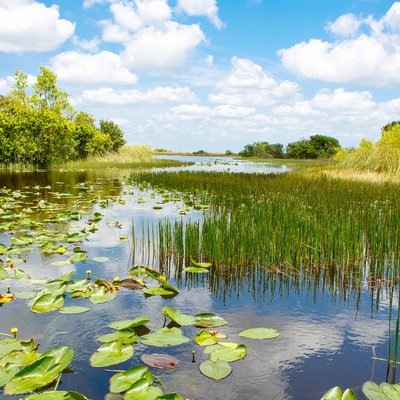|
Getting your Trinity Audio player ready…
|
By Zimbabwe Environmental Law Association (ZELA)
Wetlands provide numerous environmental, economic, and social services such as pollutant removal, wildlife habitat, groundwater recharge, and carbon sequestration.[1] They play a crucial role in climate change mitigation by trapping carbon thereby reducing greenhouse gases, a major contributor to global warming. Wetlands also help cities to adapt to climate change by storing excess runoff which would otherwise lead to hazards such as flooding. In rural areas, they play a pivotal role in enhancing households’ resilience to climate change. However, it is worrying to observe how human activities are causing significant alterations to the function, integrity, and quality of wetlands. In Zimbabwe, more than 50% of the wetlands were lost between 1980 and 2020 and this is negatively affecting the provision of ecosystem services. It is indeed time to act as being emphasized in the 2022 World Wetlands Day theme.
The Zimbabwe Environmental Law Association (ZELA) today joins the world in celebrating World Wetlands Day aimed at raising global awareness about the vital role of wetlands. This year, Wetlands Day is of great significance, as the UN General Assembly adopted Resolution 75/317 on August 30, 2021, establishing February 2 as World Wetlands Day.
A call to action for wetlands is the focus of this years’ campaign. It is an appeal to invest financial, human, and political capital to save the world’s wetlands from disappearing and to restore those we have degraded. We are reminded once again that the disruption of wetland functions has a high cost economically, socially, and ecologically.
Wetlands are protected by section 73 of the Constitution, the Environmental Management Act, in addition, Zimbabwe is internationally bound by the Ramsar Convention. Despite, these policies and regulations, the management of wetlands in Zimbabwe remains a challenge due to several reasons not limited to housing and infrastructure facilities being developed on wetlands, archaic environmental laws, corruption, lack of policy consistency, limited institutional capacities among others.[2]
Zimbabwe is experiencing rapid growth of urban populations as a result of natural increases augmented by rural to urban migration. This has placed a high demand on land in urban areas, fuelling rapid urban expansion and in certain instances, houses are being constructed on wetland ecosystems. This has led to rapid loss of wetlands and high pressure on remaining wetland areas due to intensive agriculture, drainage, pollution, sand digging, the release of sewerage, and industrial effluents among others. These challenges can also be confronted by ensuring that relevant institutions involved in the management of wetlands are capacitated to address the problems resulting from poor wetland management.
The mining sector has an important part to play in wetland management. This is because irresponsible mining operations can be destructive to wetlands due to the release of contaminated wastewater which impacts downstream drainages and wetland ecosystems. Therefore, such activities should not be permitted within wetland ecosystems, particularly given the poor record of some miners in terms of post-mining environmental rehabilitation and restoration. Overall, businesses must conduct wetland responsible practices.
There are several solutions within our reach to solve the present crisis as we need our wetlands to be effectively managed so that the present and future generations may enjoy values derived from this distinct ecosystem. Today like any other day, we are reminded of the vital importance of wetlands and their importance in regulating climate risks.
It is pleasing to note the Government of Zimbabwe’s ambitious actions for wetlands preservation including the move to draft the wetlands policy, which is still pending finalisation. The policy needs to foster the understanding that wise use of wetlands equates to maintaining and restoring these to a natural state. While the development of this draft policy is a welcome move, there is a greater need to push for its implementation and track its impact on sustainable wetlands management in Zimbabwe. Periodic evaluation of policy outcomes is essential to determine barriers, unintended outcomes, or unsuccessful aspects of policy implementation.
Increased awareness of wetland values will also help in improving wetland management. This will ensure that stakeholders get to fully appreciate the value of the multiple services provided by wetland ecosystems.
In addition, there is a need for the country to strengthen the regulation of wetlands. Degradation of wetlands is being undertaken despite existing legislation. This indicates that there are gaps and areas of legislation and policy which need to be strengthened. The destruction of these rich biodiversities but fragile ecosystems has a high cost not only for the present but future generations.
We must change course and transform our relationship with nature including living in harmony with it so that we avert the worst impacts. As ZELA we, therefore, advocate for the following:
- Increased awareness on the value, use and preservation of wetlands;
- Harmonisation of national policies that impact wetlands including the wetlands policy, housing policy, climate change policy and agricultural policy;
- Updated wetland mapping in Zimbabwe;
- Legislative review of the Regional, Town, and Country Planning Act to stop the retrospective issuance of development permits on wetlands.
http://www.zela.org/zela-press-statement-wetlands-action-for-people-nature/
[1] https://medium.com/undpzimbabwe/understanding-the-importance-of-zimbabwes-wetlands-7e4915c5f1c4
[2] Draft Wetlands Policy Zimbabwe
